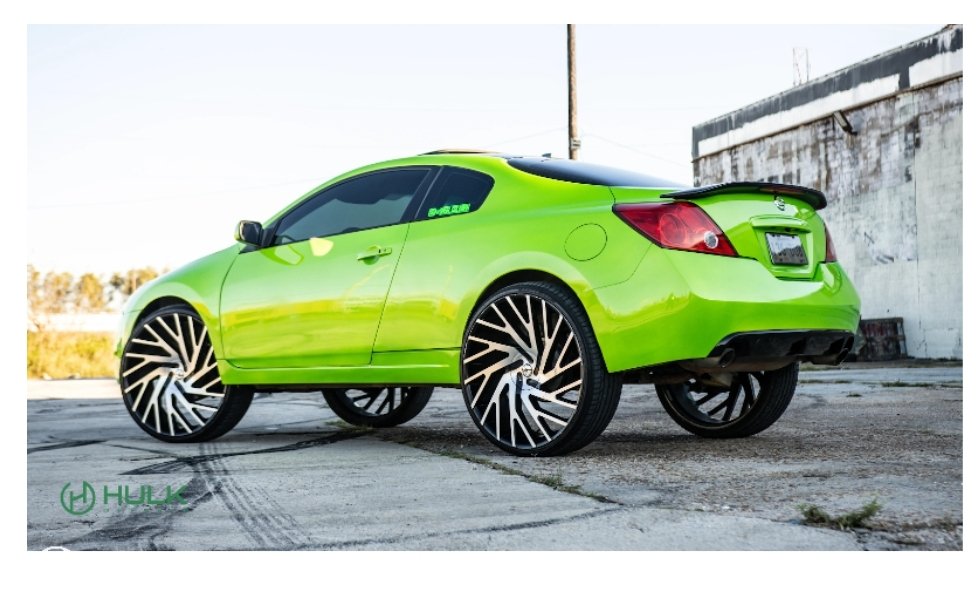Introduction
When it comes to customizing your vehicle, the choice of wheel material is more than just a matter of style—it affects your car’s performance, durability, and even fuel efficiency. The debate between alloy and steel wheels is a common one among car enthusiasts and everyday drivers alike. Each material offers distinct advantages depending on your needs, budget, and aesthetic preference. Specifically, choosing the right size, like popular 18-inch wheels, can significantly influence the look and feel of your vehicle. In this guide, we’ll explore the unique benefits of both alloy and steel wheels, helping you make an informed decision that best suits your ride, whether you’re upgrading to sleek 18-inch alloys or opting for robust steel for challenging terrains.
What are Alloy Wheels?
Made from a combination of aluminum or magnesium, materials lighter and stronger than pure metal, alloy wheels are Performance-oriented cars and those wishing to inject some flair value this contemporary option. Alloys improve a car’s handling and efficiency far more than they just enhance appearance. Leading the market with wheels that promise performance and panache are well-known manufacturers such BBS, Enkei, and OZ Racing. These manufacturers appeal to different personal preferences and car looks by having finishes in traditional silver, dramatic black, or even brilliant gold.
What are Steel Wheels?
The tough labor horses of the wheel universe are steel wheels. Usually used on larger vehicles, such trucks and SUVs, which need extra resistance under demanding conditions, steel wheels are well-known for their great strength and longevity. Steel wheels are more utilitarian than their alloy counterparts; they are less about appearances. Although they might not win any beauty contests, they are a sensible option for consumers on a tight budget and those who routinely deal with difficult driving conditions since they shine in price and toughness.
Benefits of Alloy Wheels
Lightweight Nature
One major benefit of alloy wheels’ lower weight is especially related to handling. Faster acceleration and nimble handling from lighter wheels let one have a smoother ride and more accurate turns. By reducing fuel consumption, this weight loss also allows your car to be somewhat more roadwise efficient.
Aesthetic Appeal
Broad diversity of designs and finishes provided by alloy wheels changes the appearance of your car. There’s an alloy wheel to fit every car’s character from elegant silver to deep matte black. This diversity lets drivers customize their vehicles to fit their preferences exactly.
Heat Dissipation
Excellent in spreading heat away from brake components, alloys are absolutely vital for high-performance driving. This feature guarantees that under pressure brakes remain cooler, therefore lowering the risk of overheating and maybe extending the lifetime of the brakes.
Corrosion Resistance
Naturally resistant to corrosion, alloy wheels can survive the elements more than conventional wheels. Drivers in snowy or wet environments will find them perfect since they manage road salt and moisture better, preserving their appearance and use over time.
Benefits of Steel Wheels
Cost-Effectiveness
For those on a budget, steel wheels provide a reasonably priced fix without compromising quality. For those who choose use above design, they offer a less upfront investment and appeal.
Durability and Strength
Steel is well-known for its strength and endurance, so in demanding situations steel wheels are rather robust. Without sacrificing the integrity of the wheel, they can negotiate the challenges of off-road driving and bad road conditions.
Ease of Repair
While alloy wheels can be costly and challenging to repair should they shatter, steel wheels are frequently simpler and less expensive to fix. For individuals who drive in conditions where wheel damage is more common, their simplicity of repair makes them a sensible option.
Better for Winter Use
Less sensitive to damage from de-icing chemicals and salt applied on roadways during winter are steel wheels. Their strong character makes them perfect for use with winter tires; they provide a dependable and safer driving experience during the colder seasons.
Comparative Analysis
Although individuals wishing to improve the performance and appearance of their car will find alloy wheels appropriate, steel wheels are unparalleled in cost-effectiveness and longevity. Often the decision between them comes down to your driving circumstances, intended usage for your car, and personal tastes.
Top Brands and Colors of Alloy Wheels
Top Brands
Leading the market in alloy wheels are brands like BBS, Enkei, and OZ Racing. Each brand is renowned for its commitment to quality, innovation, and design. BBS wheels are especially popular among racing enthusiasts for their cutting-edge lightweight construction. Enkei is favored for its performance-oriented designs, while OZ Racing offers wheels that combine aesthetic appeal with functional performance.
Top Colors
When it comes to color choices, alloy wheels offer a variety of options to suit any vehicle’s style. Black alloy wheels give your car an aggressive look. The most popular colors include classic silver, which provides a sleek, traditional look; matte black for a bold, assertive appearance; and striking gunmetal gray, which offers a modern twist. For those looking to make a statement, brighter colors like gold or bronze can add a unique flair to your vehicle.
Factors to Consider When Choosing Wheel Materials
Think on your vehicle’s main purpose, your regular driving circumstances, and your budget before deciding on a wheel type. Your choice of either alloy or steel wheels will depend on your priorities—performance, appearance, or durability.
Conclusion
In the automotive scene, both alloy and steel wheels find use. Whether your needs are specific—that is, whether you want to equip up for difficult terrain with strong steel or improve the performance of your automobile with a set of shiny alloys. You are well on your way to choose something that not only looks fantastic but also functions well in your specific situation by weighing your possibilities and knowing the advantages of each.

